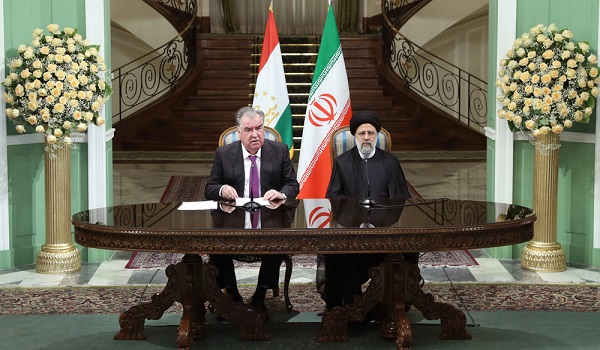 President Ebrahim Raisi of Iran has stressed that countries of the region can attain security and stability without foreign interference.
President Ebrahim Raisi of Iran has stressed that countries of the region can attain security and stability without foreign interference.
He made the remarks during a press conference with his Tajik counterpart Emomali Rahmon in Tehran on Monday.
“Iran and Tajikistan have common views on regional issues, including the withdrawal of foreign forces,” Raeisi said.
“We believe that the presence of foreigners in the region has not and will not provide security in any way,” he added, pointing out that regional countries need to resolve their issues through dialog, adding that “the presence of foreigners in the region is not helpful.”
The Iranian president also called for the formation of an inclusive government in Afghanistan, which would represent all political groups and ethnicities there, stating that Tehran and Dushanbe attach great significance to the security of Afghanistan.
“Security, stability, and tranquility must be established for the Afghan people. The presence of terrorists in Afghanistan is very worrying, and we can accept the presence of terrorists neither in Afghanistan nor anywhere else in the region,” Raeisi said.
“We believe that foreigners and agents affiliated to the global arrogant powers are nurturing Daesh terrorist group in the region in pursuit of their own political goals and interests,” he stated. “The presence of the US and NATO in Afghanistan for twenty years has yielded nothing other than war, bloodshed, and destruction. The future of Afghanistan must be decided by the people of the country itself.”
On his part, Rahmon said new documents were signed on Monday for bilateral cooperation between Tajikistan and Iran in various fields.
“We had constructive talks on enhancement of understanding between the two sides. We agreed to expand cooperation among our free trade and industrial zones. We welcome expansion of transportation through Iran’s southern Bandar Abbas and Chabahar ports,” he said.
The Tajik president also underscored that Dushanbe supports any efforts to maintain security in Afghanistan.
Hamda Mustafa

